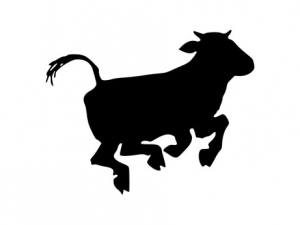New feeds that make cows less flatulent are a discovery that could truly save the world.
The methane produced in the stomachs of ruminant animals including cows, sheep and deer is a powerful greenhouse gas. In New Zealand, agriculture comprises nearly half of our rising gas emissions.
A global search is on to find ways to reduce the amount of methane produced by farm stock, and a Kiwi researcher is part of the team behind what may be the first solution.
Research co-authored by Matthew Deighton, published in the Proceedings of the National Academy of Sciences journal recently, found a new stock feed additive, NOP, cuts the methane produced by cows by almost a third.
It interferes with an enzyme in the methane-producing micro-organisms in the cow’s stomach. “It’s a very, very small amount – as little as one gram – in the daily feed of a cow. So that means it really has the opportunity to get on to farms, as we don’t have to drastically change the diet of the animals.”


















